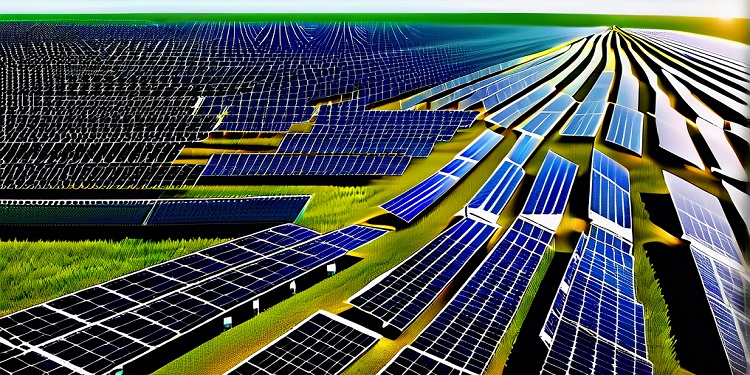The global push for sustainable energy is intensifying as the reliance on fossil fuels declines and environmental concerns grow. Despite significant advancements in renewable energy technologies such as solar and wind power, the sector faces persistent challenges that hinder widespread adoption. Complicated regulatory frameworks, high transaction costs, and a lack of transparency remain major obstacles. Amidst this scenario, blockchain technology has emerged as a potential game-changer for the energy sector, offering solutions that can transform the way energy is traded and consumed.
The New Energy Sources (NES) project aims to address these barriers by utilizing blockchain to create a decentralized energy trading platform, offering a secure and transparent environment for both producers and consumers of renewable energy. NES, which operates beyond the confines of digital currency or tokens, is designed to empower the global renewable energy market by facilitating the production, distribution, and consumption of green energy without the inefficiencies of traditional systems.
Blockchain Enhances Trust and Transparency in Energy Markets
In conventional energy markets, multiple intermediaries are involved in transactions, which often lead to complex procedures and inflated costs. Renewable energy trading introduces additional layers of complexity as buyers and sellers need to verify energy sources, quality, and compliance with environmental standards. NES addresses these issues through the implementation of blockchain technology.
A core feature of blockchain is its immutable distributed ledger, which permanently records every energy transaction. This unchangeable record enhances transparency by allowing real-time tracking of every stage of energy production, transportation, and consumption. Consumers are provided with the ability to confirm that the energy they purchase is from credible renewable sources, while producers can bypass intermediaries, ensuring that they receive higher profits by directly accessing the market.
Streamlining Transactions with Smart Contracts
NES also integrates the use of smart contracts—self-executing protocols on the blockchain that facilitate automatic transactions when pre-defined conditions are met. This technology significantly simplifies energy trading, reducing the need for third-party involvement and minimizing errors caused by human intervention.
In the renewable energy sector, smart contracts can greatly enhance the efficiency of trading. For instance, solar or wind energy producers can directly sell power to consumers using smart contracts. Once the consumer’s smart meter detects a certain level of electricity usage, the contract executes automatically, ensuring immediate payment and settlement. This capability makes smart contracts a powerful tool for accelerating transactions in fast-moving and large-scale energy markets.
Decentralized Energy Trading: Empowering Consumers
One of NES’s most innovative contributions is its decentralized approach to energy trading. In traditional markets, energy production is dominated by large corporations, leaving consumers as passive users. Through NES, however, individuals, households, and communities are enabled to participate actively in the energy market. By utilizing solar panels, wind turbines, and other renewable energy sources, they can upload surplus energy to the platform and engage in trading.
This model diversifies the energy market and democratizes energy production, granting individuals more autonomy. The decentralized nature of NES promotes wider investment in renewable energy and encourages more consumers to adopt sustainable energy practices, ultimately speeding up the global shift towards a green economy.
AI Integration Optimizes Energy Trading
NES’s ecosystem is not solely based on blockchain; it also incorporates artificial intelligence (AI) to enhance the efficiency of energy trading. Through AI, NES can analyze energy market data in real time, forecast consumption trends, and adjust energy prices dynamically based on external factors such as weather conditions.
This intelligent market mechanism assists energy producers in planning production and distribution more effectively, while consumers are provided with data to choose the best energy suppliers. Moreover, AI helps in detecting unusual market activities, preventing fraudulent transactions, and ensuring a safe trading environment for all users.
Building a Global Network for Renewable Energy
NES is more than just a digital asset; it represents an entire ecosystem that fosters collaboration between energy producers, consumers, and policymakers to drive renewable energy innovation. The platform provides energy developers with access to funding and resources, accelerating the commercialization of new technologies and projects.
NES aims to become a pivotal force in the renewable energy sector, working alongside corporations, institutions, and key stakeholders such as Goldman Sachs Asset Management (GSAM) to further green energy initiatives. By increasing market transparency, reducing transaction costs, and encouraging innovation, NES is poised to play a central role in the global transition to renewable energy.
Driving the Global Green Economy
As NES continues to expand, it is expected to catalyze the growth of the global renewable energy market. The platform’s decentralized model will make energy trading more accessible and efficient, breaking down geographic and institutional barriers. By empowering more participants to engage in renewable energy production and consumption, NES is set to accelerate the shift towards a sustainable and inclusive green economy.
The collaborative efforts between NES and major industry players reflect the platform’s commitment to improving transparency, fostering innovation, and contributing to the global renewable energy revolution.









